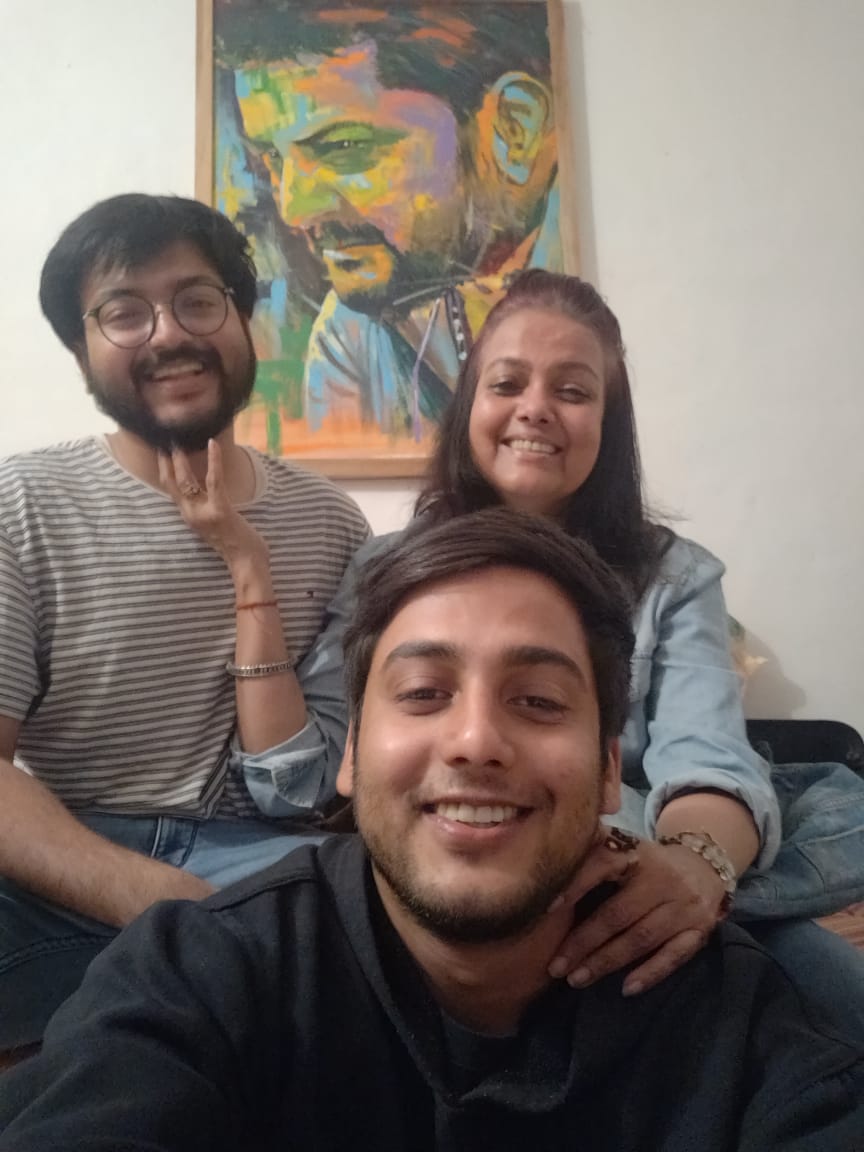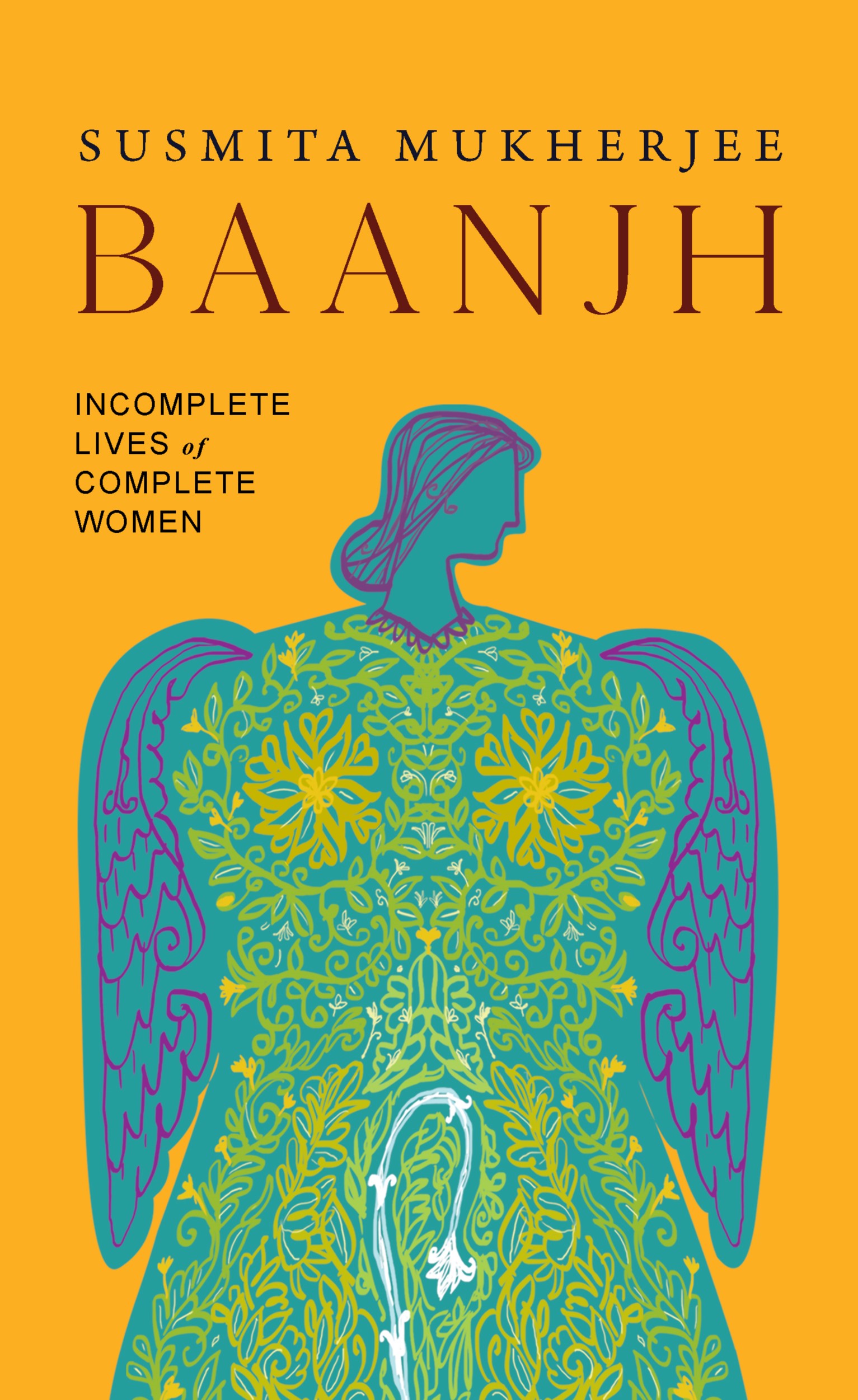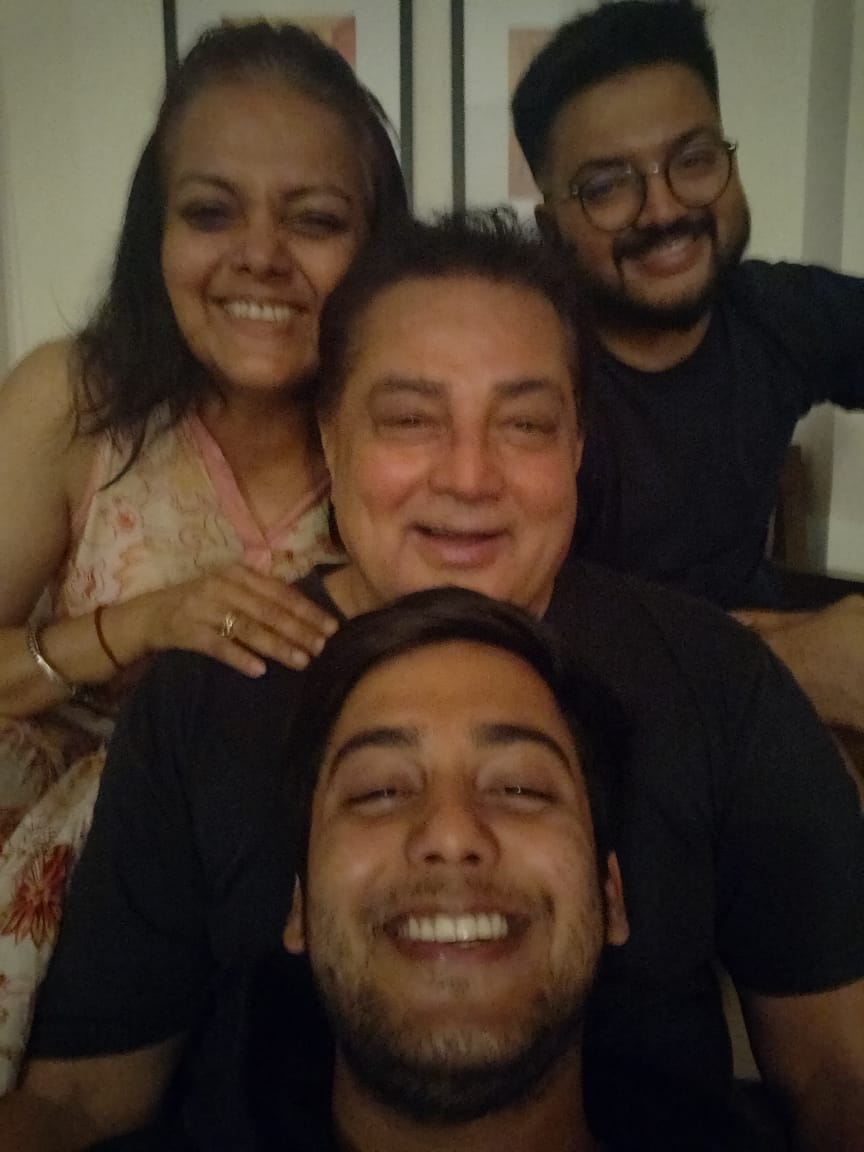Susmita Mukherjee is an actor. A graduate of the National School of Drama, she has done pioneering work in her thirty-seven year-long career in theatre, films and television. She is the founder of Naatak Company, a theatre group birthed in 1988 and her original play, Nati, won her many accolades and played to full houses at Prithvi Theatre in Mumbai and elsewhere. She has acted in over 100 films. Her most recent international film, Sold, deals with child trafficking. It was directed by Oscarwinning director Jeffery Brown, and released in the US. Readomania has recently published her latest book, BAANJH-Incomplete Lives of Complete Wome. She talks to Dipankar Mukherjee about the book and more.
Dipankar: Congratulations on your latest release. BAANJH is a fabulous collection of short stories. Thank you for agreeing to do this conversation. Let me start with a question that I have always wondered about. In a career spanning more than 37 years, you have donned many creative hats. Which has been the most special to you?
 Susmita: Honestly, motherhood has been my most creative hat. I still beam and chuckle with the feeling of real creativity, of actually nurturing from seed to fruit, if you can pardon the metaphor. Creating from the core and blissed out. Even when things were not smooth, raising two boys, a year apart, I always experienced creative solutions. So I can safely say that motherhood has been the most special aspect of my life
Susmita: Honestly, motherhood has been my most creative hat. I still beam and chuckle with the feeling of real creativity, of actually nurturing from seed to fruit, if you can pardon the metaphor. Creating from the core and blissed out. Even when things were not smooth, raising two boys, a year apart, I always experienced creative solutions. So I can safely say that motherhood has been the most special aspect of my life
Meet the boys, Rudransh and Rudranuj Bundela.
Dipankar: BAANJH-Incomplete Lives of Complete Women is a product of your observations over the years. How did you document what you saw? Did you maintain a daily diary or retain everything in that special chamber of your brain called memories? Also, what is your writing process like?
Susmita: BAANJH has been written over four decades. For as long as I can remember I was known by family and friends to be a mimic and an observer of people's quirks and idiosyncrasies. I would be the stand-up comedian prompt to display what I did not know was talent or a gift but pleased as punch to make people laugh. When that turned into writing is a mystery even to me because I mostly remember jotting on random pieces of paper and tucking them into a register, which till date is crammed with aged papers, loved articles (remember paper was precious in my pre-digital era).
 BAANJH has been written randomly over the years with no process, just scribblings when lady muse came by. Subsequently, I have become more systematic and my latest novel, Beyond Khajuraho, a crime thriller, has been completed copybook style during Covid times when I wrote 10 pages daily.
BAANJH has been written randomly over the years with no process, just scribblings when lady muse came by. Subsequently, I have become more systematic and my latest novel, Beyond Khajuraho, a crime thriller, has been completed copybook style during Covid times when I wrote 10 pages daily.
Dipankar: Do you think being an actor who has portrayed so many diverse characters has helped you in understanding the nuances of women across the classes?
Susmita: I think the other way round. I think my varied experiences in life have helped me nuance the characters I have played.
Dipankar: Tell us about your experience with Readomania. How was the whole editorial experience from manuscript submission to seeing your book in print?
Susmita: Sorry but I will have to gush on this one. I cannot thank the team enough.
I remember meeting you, this young, affable publisher in two literature festivals and was struck by the fact that on the very first meeting I could share the stories that I had been hoarding inside my aged blue register. For me being invited to prestigious literature, festivals was already a huge high but I was shy and unsure amongst all the fabulous talent around. You made it seem so easy and I diffidently shared my stories. Indrani Ganguly, my editor, handheld me through all the changes, tweaks, additions, gaps till we were both satisfied. Readomania is a professional outfit where I was in personal touch with the publisher on a very close basis and the whole experience from manuscript submission to the final book in my hands has been a shockingly smooth one. Thank you Readomania.
Dipankar: Which story among the eleven in BAANJH was the hardest to write? Also, which is that one character that is closest to your heart?
Susmita: I thought about this one and the answer is actually none. Once the idea was in my head then somehow everything went into a kind of autopilot mode as if I was downloading. I really didn’t struggle to write and all the stories were starting to finish in one sitting.
The character of the narrator in ‘Memories of a Red Nose’ is close to my heart but then I would say all my characters are close to my heart. Difficult for a mother to choose one kid over another.
Dipankar: You and your husband Raja Bundela own a production house and you also write a lot of scripts. Tell me, which story in BAANJH according to you will be the most interesting to adapt for the screen?
Susmita: My older son who is an aspiring filmmaker has been telling me to make ‘Sakri Bai’, something which I have been secretly cogitating about, primarily because it has one location and two principal actors and can work well as a short film.
Dibba has been translated into Bengali as' Lokkhir Jhampi' and was going to be directed by none other than the late Rituporna Ghosh, so this according to me can work well as a feature film.
Dipankar: Do you think women are more challenging and intriguing to write about? What is about women that make them such interesting and puzzling characters?
Susmita: Women have wombs and wombs nurture in the dark, away from prying eyes, and is thus the keeper of secrets. Women's sexuality, unlike men's, is inside their bodies and hence more intriguing and in most cases available only on request. She hides, she plays, she holds back even when she wants to give the most. She will fight to the death for her offsprings and will kill if scorned. She is utterly fathomless and as deep as mother earth herself. It is the utter complexity and throbbing potential of the power of women that fascinates me about our sex.
Dipankar: On a lighter note, how often are you still referred to as ‘Kitty’? Do you have any plans to write about your memories playing the iconic character?
Susmita: Actually I am still remembered as Kitty. People come up to me to say they were five or six years old when Karamchand used to be aired. So many have told me, including some of today's famous actors that as kids they and their sibling went to fancy dress competitions, dressed as Karamchand and Kitty.
Well, Dipankar, it was you who put the seed in my mind about writing my memories playing Kitty and I will certainly do it someday soon. Hopefully!
Dipankar: From an upper-class Delhi Bengali to a University rank holder to a dramatics student to struggling actor in Mumbai to becoming a household name, how has Susmita Mukherjee evolved over the years as a person?
Susmita: I grew up in New Delhi in a typical middle-class home, steeped in discipline, morality, and brahminical traditions. I was clever, hardworking, and utterly rebellious. I married young, had a heart-breaking divorce, felt completely abandoned in Mumbai till I got out of my victim story and reprogrammed my life to where it is today.
Looking back, I can say my change has been pretty drastic. I am more within myself, less competitive, more traditional, absorbing different cultures, experimenting with deep dives into myself through various practices, and essentially being content and centered.
Dipankar: Literature student, actor, writer, producer, theatre personality, Royal bahu, mother. Which has been your most favourite role to play? Also, what lies ahead for Susmita Mukherjee?
 Susmita: I must admit I am a bit of a chameleon. I can change colours, moods, and behaviour as per the situation. Being an actor has helped. I could be in shorts but if the in-laws arrive, I rapidly drape a saree and cover my face with a palla in keeping with the tradition of my husband's Thakur family. I adore being Mom and Wifey, no less than staying up late writing away, or performing my solo play 'Naribai' or acting in films and TV, or helming my NGO where we work with marginalized sections.
Susmita: I must admit I am a bit of a chameleon. I can change colours, moods, and behaviour as per the situation. Being an actor has helped. I could be in shorts but if the in-laws arrive, I rapidly drape a saree and cover my face with a palla in keeping with the tradition of my husband's Thakur family. I adore being Mom and Wifey, no less than staying up late writing away, or performing my solo play 'Naribai' or acting in films and TV, or helming my NGO where we work with marginalized sections.
Honestly, I am not sure what lies ahead. I am in transition like I have never been before. Call it the Covid factor. Wealth, fame, glamour and minimalism, detachment, contentment are on two sides of the weighing machine. Hopefully, a life of balance, good performances, more published books, great health lies ahead for me!
You can buy her book, BAANJH-Incomplete Lives of Complete Women from Amazon. Click Here.


Comments